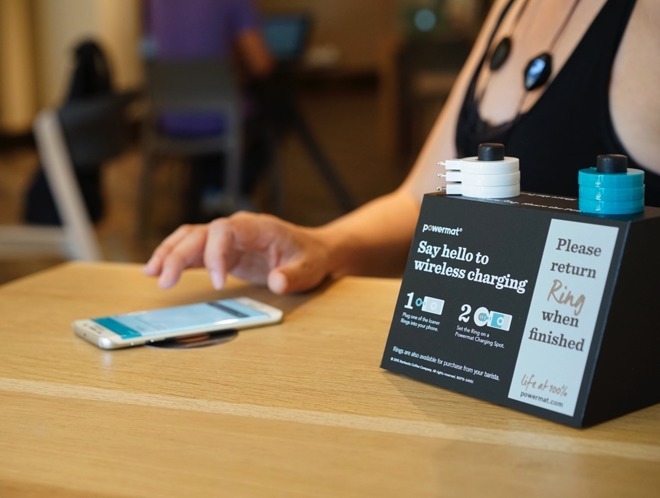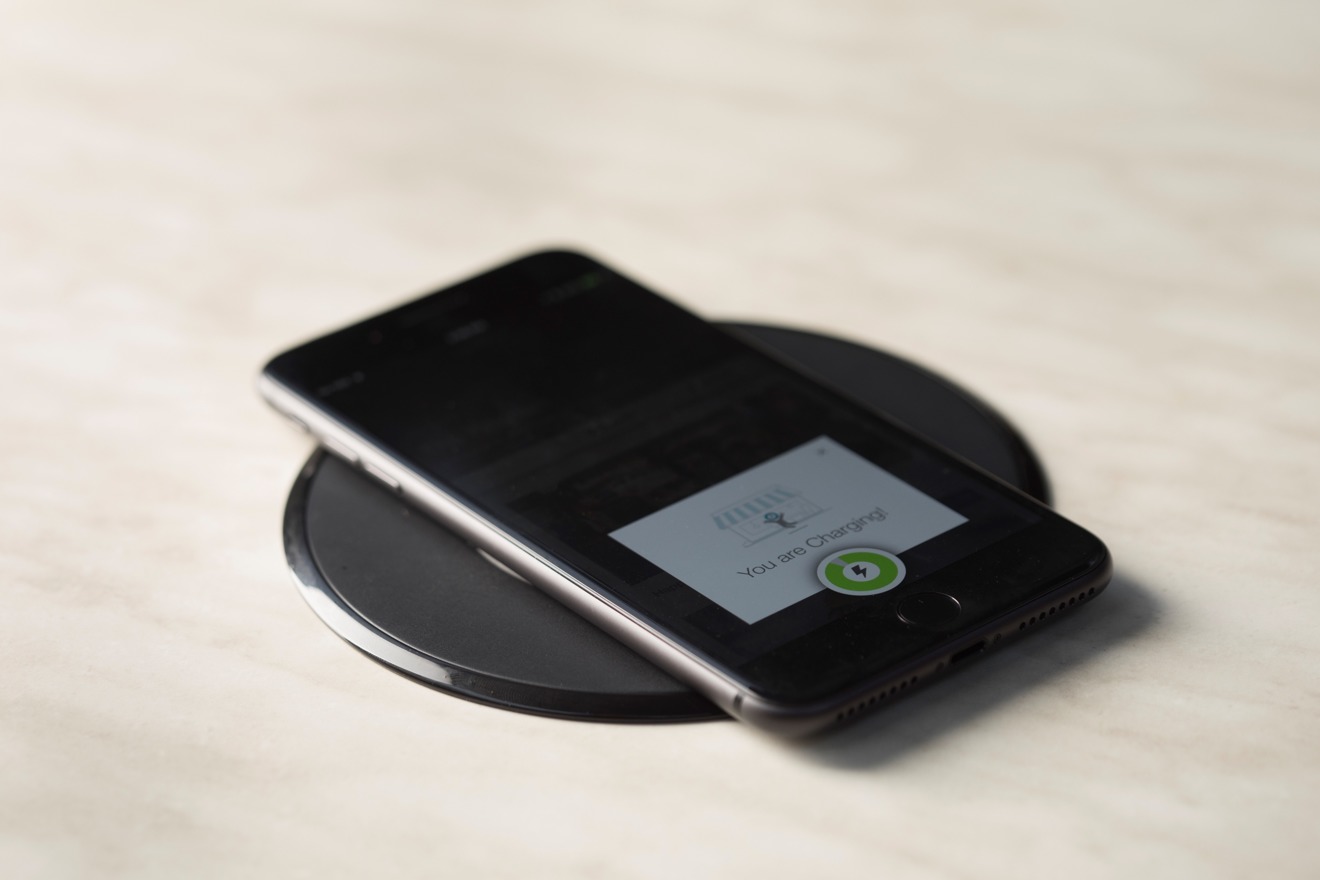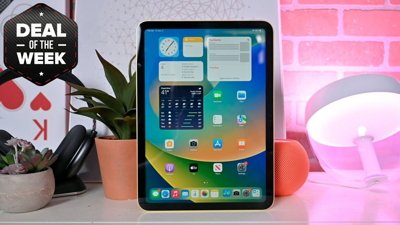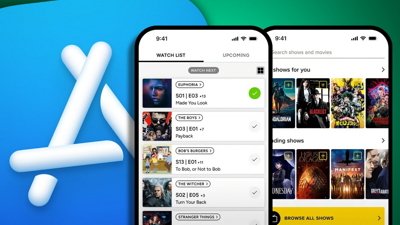Wireless charging system producer Powermat has joined the Wireless Power Consortium, backers of the Qi charging standard rivaling the company's own technology, a move that is likely to make Qi-based wireless charging more dominant in the future.
In becoming the latest firm to join the WPC, Powermat claims it will "contribute its technology and expertise to further advance inductive wireless charging capabilities," while maintaining backwards compatibility with the current Qi standard, which is commonly used throughout the technology industry. This includes the iPhone 8, iPhone 8 Plus, and iPhone X, which are all compatible with Qi charging stations.
"Qi has become the dominant wireless charging standard on the market and the recently launched Apple iPhone lineup is evidence of this success," said Powermat CEO Elad Dubzinski. The CEO continues "Powermat will share technology innovation to further unlock wireless charging potential, and will expedite the growth of the wireless charging infrastructure, bringing wireless charging to wherever users need it."
Menno Treffers, WPC chairman, welcomes Powermat to the consortium, acknowledging the company as "one of the pioneers that recognized the value of wireless charging." Powerat joining the WPC "further unifies the wireless charging ecosystem behind the Qi global standard," according to Treffers, with the group also keen to "leverage Powermat's expertise," such as to reach "high power" transfers using the technology.
Powermat has long competed against Qi by backing the PMA standard. As well as selling its own charging systems, the PMA technology also made its way to businesses to create public charging spots, with retailers and restaurants using it at their outlets to allow customers to recharge their devices
Notably, Powermat issued a software update to chargers located in Starbucks outlets in the United States in September last year, enabling the charging points to be used with the Qi standard. At the time, the company confirmed the PMA chargers were made to mechanically work with as many standards as possible, but the software update enabled the communications required for Qi to function.
While the announcement of joining the WPC seems as if Powermat is giving in to its main rival, the announcement does not mention what will happen to PWA in the future. Given that the retail-installed PWA-based chargers can be updated to work with Qi, it is probable that more will be updated to support the WPC's standard, though Powermat chargers at home are unlikely to receive such an update.
Qi's wide adoption is likely to have been accentuated by Apple's decision to use the standard for its wireless devices, joining the WPC in February last year. Just after the September iPhone event, the WPC praised Apple's decision to use Qi rather than create its own standard.
 Malcolm Owen
Malcolm Owen















 William Gallagher
William Gallagher

 Christine McKee
Christine McKee
 AppleInsider Staff
AppleInsider Staff
 Chip Loder
Chip Loder











3 Comments
I felt that Qi was "cemented" even before Apple jumped in late last year.